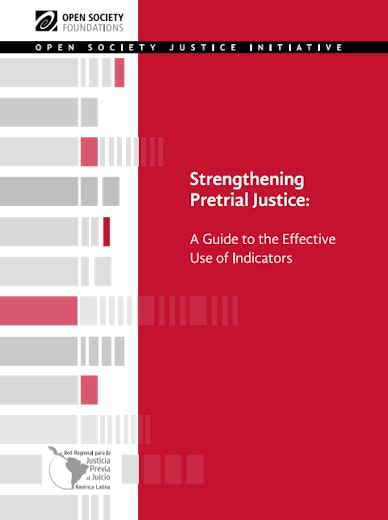Etxebarria v. Spain
Safeguards Against Police-Station Torture
People who are held in custody by the police are in an extremely vulnerable position. Most acts of torture and ill-treatment happen in the first hours or days after a person’s arrest, when both the incentives and opportunities for torture are most prevalent. The European Court of Human Rights called on Spain to introduce practical and effective safeguards against torture, and to investigate any allegations properly.
Facts
Beatriz Etxebarria Caballero and Oihan Unai Ataun Rojo were arrested under the Spanish incommunicado detention regime in Madrid for their suspected involvement in terrorism-related activities. They were held for five days and four days respectively in incommunicado detention and denied basic procedural rights during this time. They allege that they were tortured by the police by threats, physical and mental duress. Ms Etxebarria also states that during this time she was subjected to threats, humiliation, blows and sexual abuse.
Spain’s Code of Criminal Procedure allows the police to request an order from a judge that a person be held incommunicado for up to 13 days. Under this regime, detainees are refused basic rights, including:
Open Society Justice Initiative Involvement
The Justice Initiative submitted a third-party intervention in the case asking the Court to expand on the positive obligations under Article 3 to prevent the torture and ill-treatment of people in detention or in the custody of the police by requiring states to introduce safeguards against torture.
Arguments
Positive Obligations. States have a positive obligation under Article 3 to protect people from torture and ill-treatment. This obligation will be breached if the State fails to provide a legal framework to protect people.
Vulnerable Individuals. Where the State knows or ought to know that an individual is particularly at risk of torture or ill-treatment, it must take specific measures and reasonable steps to avoid that risk. People in detention and police custody are particularly vulnerable to torture and ill-treatment. This vulnerability is at its greatest in the early stages of detention.
Safeguards. States must put in place safeguards to protect people in detention or police custody from being tortured or ill-treated. These fundamental safeguards include, at a minimum, the rights to effective legal assistance and independent medical assistance, and the right to notification of their detention and communication with the outside world.
Absolute Rights. The absolute nature of the prohibition against torture means that States are not permitted to derogate from these fundamental safeguards, even where the suspect is accused of terrorist-related activities.
In a judgment delivered on October 7, 2014, the European Court of Human Rights called on Spain to introduce safeguards to protect people in police detention or custody from torture and ill-treatment. The court ruled that Spain violated Article 3 of the European Convention on Human Rights (the prohibition against torture) for its failure to investigate the complaints of ill-treatment by the two applicants in the case. The violation arose due to Spain’s failure to conduct an effective investigation through the use of proper medical examinations, and due to a lack of sufficient judicial scrutiny.
In its ruling, the court said that it agreed with the recommendations of the European Committee for the Prevention of Torture and Inhuman or Degrading Treatment or Punishment (CPT) and the Open Society Justice Initiative’s observations in the third-party intervention concerning the safeguards needed in a case such as this one. The Justice Initiative’s third-party intervention stated that certain fundamental defense rights—the right to access effective legal assistance, independent and competent medical assistance, and outside communication—are part of a framework of laws that states are required to implement in order to prevent torture and ill-treatment under Article 3 of the convention.
The ruling is particularly important for the emphasis placed on the obligations states have to protect suspects in police stations from torture and ill-treatment. While the court has criticized Spain’s incommunicado detention regime in the past, this new ruling recognized that people in the state’s custody are particularly vulnerable to abuse and therefore require precise and stringent safeguards. The ruling augments the court’s jurisprudence that human rights cannot be skirted in the name of countering terrorism.
Date of judgment of the European Court of Human Rights.
Open Society Justice Initiative submits third-party intervention to the European Court of Human Rights.
Mr Ataun files complaint with the European Court of Human Rights.
Ms Etxebarria files complaint with the European Court of Human Rights.
Ms Etxebarria is arrested and held in incommunicado police custody for five days at the headquarters of the Guardia Civil in Madrid.
Mr Ataun is arrested and held for four days incommunicado at the general police headquarters in Madrid.
Related Work
Case Watch: European Court Strengthens Anti-Torture Safeguards
A ruling on Spain’s use of incommunicado detention for terrorism suspects calls for safeguards to ensure that suspects are protected from the risk of torture.
Presumption of Guilt: The Global Overuse of Pretrial Detention
Combining statistical analysis, first-person accounts, graphics, and case studies of successful reforms, this report is the first ever global survey of the damage done by unnecessary and arbitrary pretrial detention.

Strengthening Pretrial Justice: A Guide to the Effective Use of Indicators
This guide proposes a methodical approach toward developing and deploying empirically based indicators to identify exemplary and problematic pretrial practices.
